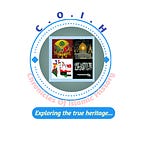UNRAVELLING EVENTS BETWEEN 2005–2014
The period between 2005 and 2014 was marked by significant events in the Israeli-Palestinian conflict, diplomatic initiatives, political changes, and escalations of violence. Here are some notable events during this period
2005: In August 2005, Israel dismantled 21 settlements in the Gaza Strip and evacuated Israeli settlers and army from the area. It was implemented in August 2005 and completed in September 2005. Israeli security forces evicted settlers who refused to accept government compensation packages and vacate their homes prior to the deadline of August 15, 2005. The eviction of all residents, demolition of residential buildings, and evacuation of associated security personnel from the Gaza Strip was completed by September 12, 2005. The eviction and dismantlement of four settlements in the northern West Bank was completed ten days later. A total of 8,000 Jewish settlers from the 21 settlements in the Gaza Strip were relocated
2006: Legislative elections were held in the Palestinian territories on 25 January 2006 in order to elect the second Palestinian Legislative Council (PLC), the legislature of the Palestinian National Authority (PNA). The result was a victory for Hamas, contesting under the list name of Change and Reform, which received 44.45% of the vote and won 74 of the 132 seats, whilst the ruling Fatah, another Palestinian political organization received 41.43% of the vote and won 45 seats.
2007: The Battle of Gaza, also referred to as Hamas’s takeover of Gaza, was a military conflict between Fatah and Hamas that took place in the Gaza Strip from 10 to 15 June 2007. It was a prominent event in the Fatah–Hamas conflict, centered on the struggle for power after Fatah lost the 2006 Palestinian legislative election. The battle resulted in the dissolution of the unity government and the defacto division of the Palestinian territories into two entities: the West Bank governed by the Palestinian National Authority (PNA), and the Gaza Strip governed by Hamas. Hamas took control of the Gaza Strip, while Fatah officials were either taken as prisoners or expelled according to some sources. The Palestinian Centre for Human Rights reported that at least 161 people were killed and more than 700 were wounded during the fighting.
2008–2009: In December 2008, Israel launched Operation Cast Lead, The Gaza War, also known as ‘Operation Cast Lead’ also known in the Muslim world as the Gaza Massacre and referred to as the Battle of al-Furqan by Hamas, was a three-week armed conflict between Gaza Strip Palestinian paramilitary groups and the Israel Defense Forces (IDF) that began on 27 December 2008 and ended on 18 January 2009 with a unilateral ceasefire. According to sources, The Israeli government’s stated goal was to stop indiscriminate Palestinian rocket fire into Israel and weapons smuggling into the Gaza strip. Hamas stated its rocket fire, which resumed in November 2008, was in response to an Israeli raid of a tunnel leading from Gaza, which it characterized as a ceasefire violation. Israel said the raid was a preemptive strike against a tunnel they believed would be used to abduct Israeli soldiers guarding the border. The conflict resulted in 1,166–1,417 Palestinian and 13 Israeli deaths (including 4 from friendly fire) according to a source.
2012: In November 2012, Israel launched another operation called ‘Operation Pillar of Defense’ targeting Hamas in the Gaza Strip in response to rocket attacks. The Palestinians blamed the Israeli government for the upsurge in violence, accusing the IDF of attacks on Gazan civilians in the days leading up to the operation. A ceasefire was brokered by Egypt, temporarily halting hostilities. Several reactions came from the international community while most countries including Turkey and Egypt urged Israel to stop their violence and oppression against Hamas especially the innocent people who are being killed in the attacks.
2013–2014: In December 2012, following the UN’s decision to upgrade the State of Palestine’s status and the conflict in Gaza, there were increased calls for a unified Palestinian front. To reconcile their differences, the political leaders of Hamas and Fatah took several steps. In a televised address, PA President Mahmoud Abbas announced that talks with Hamas would immediately follow the Palestinians’ bid to upgrade their status at the UN General Assembly, which was successful. Israel and the United States have effectively opposed reconciliation, according to Jimmy Carter (the 39th president of the United States from 1977 to 1981) but Fatah allowed Hamas to hold a rally in the West Bank for the first time since 2007, and Hamas reciprocated by allowing Fatah supporters to hold a rally in Gaza for the first time since the civil war. Khaled Meshaal and Mahmoud Abbas held renewed reconciliation talks in Cairo led by Egyptian President Mohammed Morsi on 9th of January.
July 2013: The U.S. brokered direct peace talks between Israelis and Palestinians resumed after a hiatus of nearly three years. However, the talks faced challenges and ultimately did not yield a peace agreement.
June 2014: Three Israeli teenagers were kidnapped and later found murdered in the West Bank. Israel accused Hamas of involvement, leading to a crackdown in the West Bank and an escalation of hostilities.
July — August 2014: Israel launched another operation on Gaza called ‘Operation Protective Edge’. The 2014 Gaza War, also known as Operation Protective Edge, it was a military operation launched by Israel on 8 July 2014 in the Gaza Strip in response to the alleged kidnapping and murder of three Israeli teenagers which Israel said was carried out by Hamas. The conflict lasted seven weeks and resulted in over two thousand deaths, mostly Gazan Palestinians. The Israeli military aimed to stop rocket fire into Israel, while Hamas aimed to end the Israeli-Egyptian blockade of the Gaza Strip and gain international pressure on Israel to comply with a ceasefire and release Palestinian political prisoners.
In the next episode, we shall continue in explaining the way the different narratives unfolds in the Palestinian-Israeli conflict.
